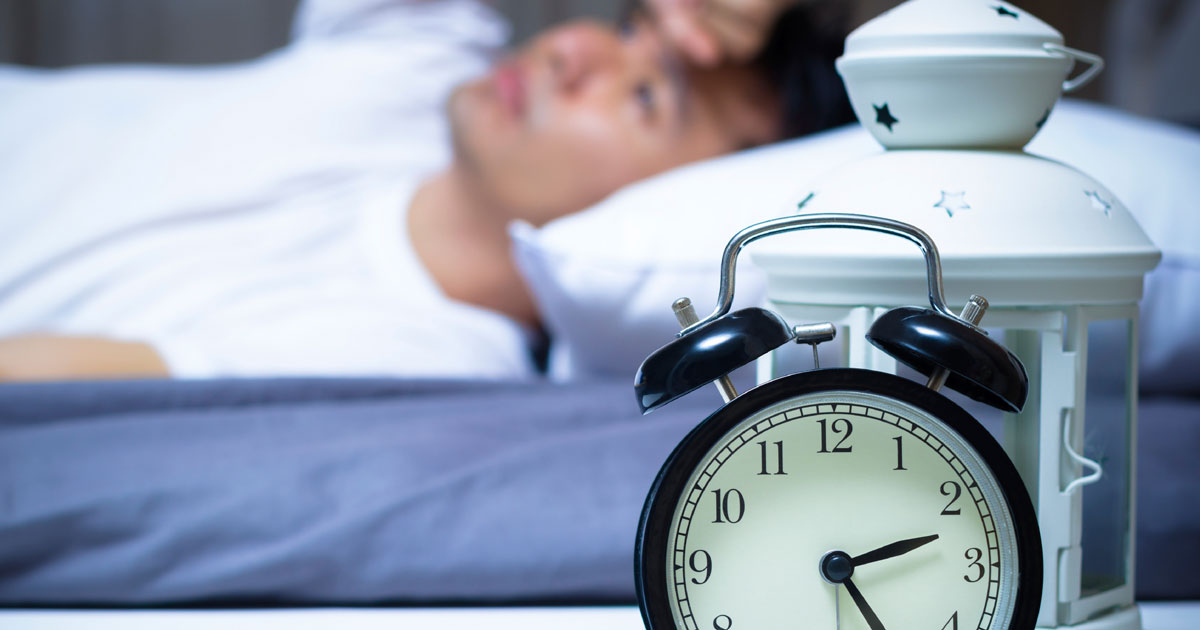Immediate Response
Change the Venue
If you are still groggy and sleepy, try to lie back down for a few minutes. If you find yourself fully awake following a nocturnal panic attack, force yourself up and out of bed.
Going to a different room will change your environment, which will aid in changing your thoughts. Consider having a drink of water or decaffeinated tea to occupy yourself. Having a small snack or even splashing water on your face can do enough to break the feelings of fear and discomfort.
Reduce Stimulation
People who wake up in the night errantly tend to pick up their phone or turn on the TV. These acts stimulate you — they will keep you alert and more awake.
Avoid sleeping or trying to sleep with the TV on. You may think it assists in your attempts for sleep, but it actually reduces the quality and quantity of your rest. Instead, grab a book or magazine if you find yourself bored. Doing a jigsaw puzzle or a craft could make falling back to sleep more of a reality.
Set a Time Limit
Having a nocturnal panic attack should not be a sign that you cannot sleep for the remainder of the night. Once you wake, take note of the time and set a timer for 20 minutes. During that time you can focus on completing the steps above in your quest to return to sleep. Once the time has expired, return to bed with the goal of getting good rest.
Daytime Interventions
Improving sleep and reducing nocturnal panic attacks does not have to be a nighttime activity only. By preparing and planning during the day, you can build strategies to positively influence your anxiety, panic and sleep. You may not be able to completely improve all symptoms, but a few simple steps can make a big difference. Here’s how:
Practice Relaxation
Anyone with panic and anxiety should be doing relaxation techniques daily, both when symptoms are high as damage control and when low as prevention. Have you tried anxiety coping cards or found another technique that works well for you? Has your go-to technique lost any of its benefit over time?
Consider expanding or modifying your relaxation skills. With a range of options and limitless variations of each, it is unreasonable to think that you will not find positive effects from the exercises. As always, practice will be needed to get the most out of relaxation.
Seek Enjoyment
Too often people become overly focused on their anxiety. They spend all of their time and efforts towards reducing anxiety and avoiding situations that might trigger panic. This leads to living life in a box with fewer opportunities for pleasurable experiences.
You can accomplish more by adding positives to your life than you can by reducing the negatives. Do this by contacting friends and trusted family supports. Go new places and do new things. Being active is a fantastic coping skill with many rewards.
Change Your Views of Sleep
The way you think about sleep greatly influences your success with it. If you try to force or demand sleep you hinder the process. Wondering what will happen if you don’t sleep or when your next good rest will be only adds anxiety and feeds your panic disorder.
Allow yourself to sleep when your body is ready. Believe that your body will do what it needs to do. It is very unlikely that you will go days without sleeping. Letting go of control will lead to better results.
To some, the idea of a nocturnal panic attack is a new concept. To others, it is something to be feared. In either case, preparation is key. By knowing the signs and the responses that help, you leave yourself in a position of power. Power leads to fewer attacks and better rest.

